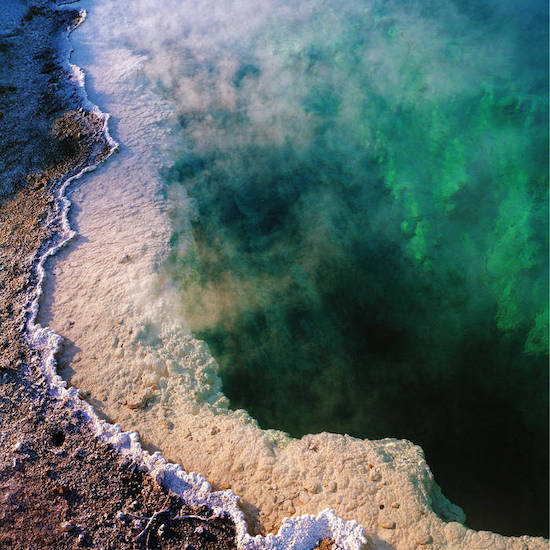Field recording can be a solitary discipline, one which requires the artist to fade out mundane distractions and immerse themselves fully in their soundscape of choice. Lawrence English’s catalogue teems with works that feel like the result of such remote journeys. While the Australian composer and Room40 label head was often accompanied and assisted by others in the making of his recordings, usually by his wife Rebecca, 2020’s Field Recordings From The Zone, 2021’s A Mirror Holds The Sky and 2022’s Viento all carry within them varying degrees of isolation, embedded in punishing gusts of wind, rainfall patter, and bushfire chimaera. Every so often, the phenomena get stretched to extremes, making English’s music appear like a vision of an uninhabited Earth several millennia in the future. This sense of desolation carries over to his electronic records, with pristine organic sounds making way for expansive synthetic textures but maintaining a cosmic, timeless scope.
As the all-consuming drone of Merzbow & Vanity Production’s Coastal Erosion and Stephen O’Malley & François J. Bonnet’s slightly airier Cylene teach us, it takes a companion to devise heavy music inspired by the immense, aeons-stretching power of tectonic shifts. Enter New York based composer, sound artist and multi-instrumentalist Lea Bertucci. Like on the excellent Colours Of Air his released earlier this year with Canadian ambient musician Loscil, English lends himself as an attentive listener and generous collaborator on Chthonic. He uses electronics, tapes, and found sound to carve out subterranean spaces for Bertucci to fill with lap steel guitar, cello, viola, and flute phrases. Although the two musicians met in person at the 2019 edition of the Novas Frequencia festival in Rio de Janeiro, circumstances led the collaboration to become remote and unfold slowly and patiently – how else! – over the next couple of years.
A striking conceptual simplicity is at work on each of the five cuts on the album. The combination of their suggestive titles and sonic affects leaves little space for vagueness. Instead, they rely on voluminous textural shapes and repeating motifs to deliver a message of massive impact. On opener ‘Amorphic Foothills’, English’s humming, growling effects start front and centre, but soon subside into the background, while Bertucci’s nervously bowed string reverberations dance in their midst like lava flowing down a cliff, giving the whole piece a restless feel. Likewise, the torrent of static noise and insect-mimicking synthetic chirps of ‘Dust Storm’ and the Laraaji-evoking, metallic microtonal trilling on ‘Geology Of Fire’ conjure the sensation of being trapped in a violent maelstrom or in the midst of a blazing field.
In contrast to these unwavering, vigorous structural movements, ‘A Fissure Exhales’ and ‘Strata’ might appear static, but their inner workings are just as dynamic as those of the earlier cuts if operating on a much larger timescale. Across vast expanses of time and land, nothing but a creaking, haunted set of swings stands in the way of razing winds, while the pressure gradually increases with each of English’s sunken detonations and rusty textures, until finally dispersing under the mercurial, simultaneously calming and agonising whistles of Bertucci’s flute. And as the album ends, the emotions left behind are similarly ambiguous, a combination of eldritch awe and gripping existential terror.


